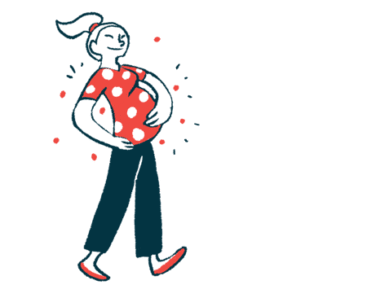Bylvay eases itch over long term in PFIC, Alagille syndrome patients
Improvements in sleep, growth seen over 72 weeks
Written by |

Nearly 1.5 years of treatment with Bylvay (odevixibat) effectively reduces itching and liver damage markers, and improves growth and sleep in people with progressive familial intrahepatic cholestasis (PFIC), data from a Phase 3 clinical trial extension shows.
A separate Phase 3 trial extension’s results showed similar long-term benefits in people with Alagille syndrome, another inherited disease that affects the liver. The therapy, which is being developed by Ipsen, also showed a consistently favorable long-term safety profile in both studies. The findings were presented at the American Association for the Study of Liver Diseases’ 2024 Liver Meeting, Nov. 15-19, in San Diego.
“Data suggesting Bylvay-treated patients experienced sustained efficacy, and which support the safety and tolerability profile seen in previous clinical trials, are important,” Sandra Silvestri, MD, PhD, executive vice president and chief medical officer of Ipsen, said in a company press release.
PFIC refers to a group of rare genetic disorders marked by cholestasis, when the flow of bile from the liver to the intestines is slowed or stalled, early in infancy. This leads to a buildup of bile in the liver, which damages it, and bile leakage into the bloodstream, which can cause pruritus, that is, itching, a hallmark disease symptom. Each type of PFIC is caused by mutations in specific genes involved in bile production and/or transport.
Alagille is a rare genetic syndrome that affects the development of several organs, including the liver. The disease’s associated liver problems include cholestasis in early infancy that also causes itching.
Available as a once-daily capsule that can be swallowed or mixed with soft food or liquid, Bylvay suppresses the enzyme responsible for carrying bile from the intestines back to the liver to be reused. This should increase the amount of bile excreted into feces and reduce its buildup in the liver and bloodstream.
Bylvay is approved in the U.S. to treat pruritus in PFIC patients ages 3 months and older, and Alagille patients ages 1 year and older. The therapy is also cleared in the European Union, where it’s marketed as Kayfanda, for PFIC and Alagille patients, 6 months and older.
Bylvay for PFIC
The new Bylvay data on PFIC come from PEDFIC 2 (NCT03659916), an ongoing open-label extension study that enrolled 116 patients. Some were children and adolescents with PFIC types 1 and 2 who’d participated in the Phase 3 PEDFIC 1 trial (NCT03566238) that tested Bylvay against a placebo for six months. Others, of any age and with any PFIC type, had no previous exposure to Bylvay.
PEDFIC 2 participants are receiving Bylvay for up to 72 weeks, or about 1.5 years; 83 of them have already completed the last assessment.
Available 72-week data showed 61% of all 31 patients with standard forms of PFIC had a clinically meaningful reduction in their pruritus score. Also, 42% of the 12 patients who initially received a placebo and switched to Bylvay at PEDFIC 2’s start saw such a reduction.
Blood levels of bile acids, the main component of bile, also showed a pronounced decline, suggesting the therapy was working as intended.
Bylvay was also associated with increases in height and weight, suggesting nutrients for growth were being digested and utilized better, along with gains in sleep, which is greatly affected by itching.
The most commonly reported adverse events were gastrointestinal issues (17.2%), notably diarrhea (12%), which led two patients to pause or stop the treatment.
“These open-label extension data from PEDFIC 2 suggest that the initial reduction in pruritus and in serum bile acid levels achieved following initiation of [Bylvay] are being sustained into the longer term,” said Richard J. Thompson, MD, PEDFIC 2’s principal investigator and a professor of molecular hepatology at King’s College London.
Benefits are also being seen “across a number of PFIC subtypes,” Thompson said, noting “this is important information for our understanding of the therapeutic management of our patients living with PFIC.”
Findings with Alagille patients
Similar findings were reported in 44 Alagille patients who completed 72 weeks of Bylvay treatment in ASSERT-EXT (NCT05035030), a separate open-label extension study. The patients had either completed the previous six-month, placebo-controlled Phase 3 ASSERT study (NCT04674761) or were newly enrolled.
All but two of the 30 patients on Bylvay in both ASSERT and ASSERT-EXT, and all but three of the 13 patients who switched from a placebo when they entered ASSERT-EXT had clinically meaningful reductions in itch scores.
Bylvay also led to long-term reductions in bile acid levels, along with gains in growth and sleep. The therapy’s long-term safety profile was consistent with that reported in ASSERT, diarrhea being the most common adverse event.
“These results not only show the potential to manage symptoms like pruritus, which can be extremely difficult for children and their parents to manage, but we’re also seeing a consistent safety profile over the longer term with sustained tolerability,” said Nadia Ovchinsky, MD, ASSERT’s principal investigator at Hassenfeld Children’s Hospital at New York University Langone.



